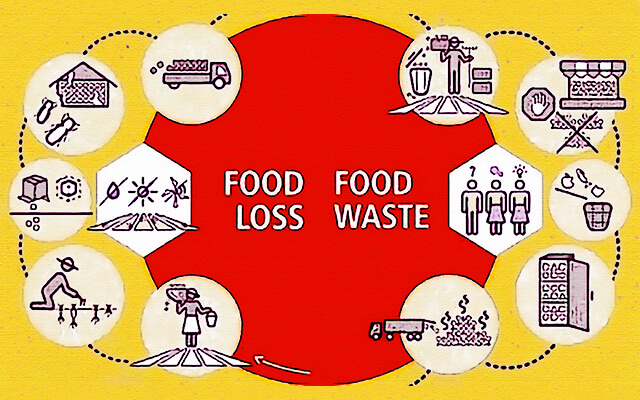Food loss and waste, proposal for revision of the framework directive on waste in the EU
By: Dario Dongo – Andrea Adelmo Della Penna 06/07/2023
From: GIFT (Great Italian Food Trade)
On 5 July 2023, the European Commission adopted the proposal for the revision of the Waste Framework Directive, which includes, inter alia, new rules and targets for reducing food losses and waste (food loss and waste, FLW) in the EU. (1)
1) Ensuring resilient and sustainable use of EU’s natural resources
The reform project fits into the legislative package ‘Ensuring resilient and sustainable use of EU’s natural resources’ and aims to complete the framework of the proposals already adopted in an attempt to implement the Green Deal. (2) With particular regard to strategies:
- fit for 55, aimed at reducing greenhouse gas emissions by 55% by 2030. Through various initiatives on thermal performance of buildings, vehicle emissions, CO2 emissions and sequestrations from land use activities (i.e., carbon credits),
- Circular Economy Plan
- Green Deal Industrial Plan, Zero Pollution Action Plan.
2) Circular economy in the agri-food chains
The circular economy in the agri-food chains it is an economic urgency, as already highlighted in the report ‘Food circular design study‘ from the Ellen MacArthur Foundation (2021). A paradigm to follow in the (re-)design of each value chain, starting with the recovery of wastewater for irrigation and organic materials for fertilize the soils. agrobiodiversity, agroecology and upcycling are the key words to prevent and reduce food loss and waste (FLW), which the European Commission refers to as ‘a major source of inefficiency‘.
The scheme revision of the waste framework directive requires individual Member States to adopt targets for the reduction of food losses and waste, with the threefold objective of:
1) recovering food for human consumption, and thus contributing to food security,
2) favouring the saving of economic resources by companies and consumers,
3) reducing the environmental impacts associated with the production, consumption and disposal of materials not used for human consumption.
3) Framework directive on waste, the revision proposal
The framework directive on waste (Waste Framework Directive) was most recently amended with directive (EU) 2018/851, which introduced:
- definitions of food loss and waste (FLW),
- first measures on the prevention of food losses and waste in the different Member States,
- basis for defining a common method and minimum quality requirements for the uniform measurement of FLW levels.
The new directive – in the text proposed in Brussels – aspires to introduce prevention programs with more stringent requirements on waste. With special rules on food waste.
4) Food loss and waste (FLW). The new measures
The new measures such as food loss and waste concern:
- prevention of food waste (new article 9-until). Member States must take measures to prevent food losses and waste throughout the agri-food chains (from primary production to domestic consumption). To this end, awareness campaigns, promotion of food donations, identification of inefficiencies in agri-food chains, promotion of collaboration between different actors, support for training and development of skills, together with facilitation of access to programs and resources,
- food waste prevention programs (new article 29-until). Within two years of the entry into force of the directive, Member States must review and adapt food waste prevention programs to the new target, as well as defining the competent authorities for coordinating the measures.
Member States will eventually be required to adopt the necessary measures to reduce, by the end of 2030,
- food losses in the production phases (food loss), by 10%, and
- food waste in the retail, catering and consumption stages (food waste), to the extent of 30% (per capita).
5) European Citizens’ Food Waste Panel
‘Conference on the Future of Europe’ is the system developed in the EU to ‘enable all Europeans, through a citizen-centred ‘bottom-up’ process, to have their say on what they expect from the European Union and to play a greater role in shaping the future of the Union’ .
The first of the 49 proposals developed includes outcomes such as the application of the circular economy in agriculture, and the promotion of measures against food waste. (3)
European Citizens’ Food Waste Panel was one of the follow-up of the conference. 147 randomly selected citizens contributed to providing the basis for the legislative proposal under consideration, together with 23 recommendations aimed at reducing food loss and waste (4,5. See Fig. 1).
Fig. 1 – 23 final recommendations provided by the European Citizens Food Waste Panel, together with the number of votes by the 147 participants (Source: EU Commission)
6) European Consumer Food Waste Forum, JRC
JRC (Joint Research Center) and DG SANTE (Directorate-General for Health and Food Safety, European Commission) have in turn set up a multidisciplinary approach to address food waste (food waste), with the help of 15 researchers and professionals. In order to collect data and identify a variety of practical ‘evidence-based‘ solutions. With the aim of producing a compendium of best practices to facilitate the adoption of effective interventions. (6)
Joint Research Centre (JRC) has also published 5 reports describing the activities carried out and a drafting of the proposal for a directive under consideration and the development of the European Consumer Food Waste Forum. They concern:
- the research carried out in support of the impact assessment of the proposed directive, as regards the definition of legally binding targets for the reduction of food loss and waste. In addition to the outcomes of the public consultation and the results of an EU review of food prevention policy initiatives, (7)
- a comprehensive assessment of the economic implications for various FLW reduction goals. The study uses the MAGNET-adapted computable general equilibrium model and employs a set of sustainability indicators to analyse the economic, social and environmental impacts associated with reducing food waste. A bottom-up analysis based on life cycle assessment is conducted as an additional approach to assess the environmental implications of meeting food waste reduction targets, (8)
- the main results of the work of the European Consumer Food Waste Forum, where the importance of adopting a systemic approach that considers the key factors and levers of change is underlined when aiming to reduce food waste at the consumer level. The compendium encourages collaboration and concrete action to tackle food waste and promote the creation of sustainable food systems, (9)
- the scope of the European Consumer Food Waste Forum and the Scoreboard for Consumer Food Waste Prevention Interventions, (10)
- the definition of the key concepts of behavioural experiments to design and administer effective interventions aimed at reducing consumer food waste, with the goal of supporting practitioners, policy makers and other stakeholders in using behavioural experiments to inform the design of interventions reduction of food waste. (11)
7) Provisional conclusions
The proposal of a directive is now being brought to first reading by the Parliament and the Council, in the hope of reaching a compromise that will allow it to be approved by the end of the current legislature.
Various initiatives and EU research projects (e.g., wasteless) are in the meantime, to prepare the agri-food chains of the Old Continent to reduce food loss and waste.
Dario Dongo and Andrea Adelmo Della Penna
Footnotes
(1) European Commission. Food waste reduction targets. https://food.ec.europa.eu/safety/food-waste/eu-actions-against-food-waste/food-waste-reduction-targets_en
(2) European Commission. Ensuring resilient and sustainable use of EU’s natural resources. COM(2023) 410 final. https://commission.europa.eu/system/files/2023-07/Communication%20on%20Sustainable%20Use%20of%20Natural%20Resources.pdf
(3) Conference on the future of Europe. Final result report. May 2022. https://futureu.europa.eu/it/pages/reporting
(4) European Commission. Impact Assessment Report – Annex 16. SWD(2023) 421 final. https://food.ec.europa.eu/system/files/2023-07/flw_eu-actions_ia_report-2023_annex-016.pdf
(5) European Commission. European Citizens’ Food Waste Panel. https://citizens.ec.europa.eu/food-waste-panel_en
(6) European Commission. European Consumer Food Waste Forum. https://knowledge4policy.ec.europa.eu/projects-activities/european-consumer-food-waste-forum_en#forum
(7) European Commission. Setting the scene for an EU initiative on food waste reduction targets – Outcomes of consultation activities and analysis of efforts on food waste reduction. JRC Publications Repository, https://publications.jrc.ec.europa.eu/repository/handle/JRC133967
(8) European Commission. Assessing the economic, social and environmental impacts of food waste reduction targets – A model-based analysis. JRC Publications Repository, https://publications.jrc.ec.europa.eu/repository/handle/JRC133971
(9) European Commission. Tools, best practices and recommendations to reduce consumer food waste – A compendium. JRC Publications Repository,https://publications.jrc.ec.europa.eu/repository/handle/JRC133004
(10) European Commission. Scoping consumer food waste: an evaluation framework of prevention interventions. JRC Publications Repository,https://publications.jrc.ec.europa.eu/repository/handle/JRC128763
(11) European Commission. A simple introduction to using experiments to evaluate consumer food waste interventions. JRC Publications Repository,https://publications.jrc.ec.europa.eu/repository/handle/JRC133661


Pingback: Latest draft on the of the Waste Framework Directive amendment – Wasteless